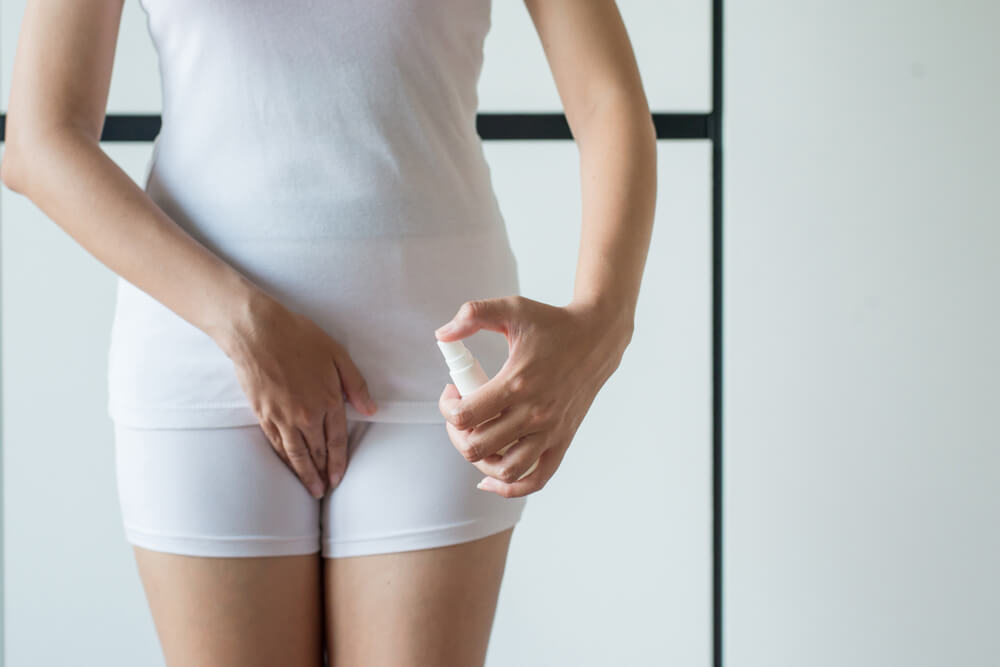It’s entirely natural for the vagina to produce a particular scent. Generally speaking, the smell that one’s vagina emits can tell much about the person’s overall health, lifestyle, and activities.
Ask any expert in obstetrics and gynecology in South Miami, Florida, and they will tell you that vaginal odor will also most typically vary throughout the menstrual cycle. For example, vaginal discharge may be the culprit behind vaginal smells because they become more pronounced in the middle of the cycle. Conversely, the smell of the vagina may become more apparent after a workout or intercourse.
And while it’s normal for every vagina to produce a certain unique smell, pungent and prevalent odors that can linger around for days (such as fishy vaginal odor) should be addressed by a professional.
For the most part, a bad-smelling vaginal odor is only a symptom of an underlying health problem, especially when the bad smell is also accompanied by other unpleasant symptoms like itching, burning, and discolored vaginal discharge.
Read on to learn more about vaginal odors, how to prevent them, and effective vaginal odor treatments.
What Causes Vaginal Odor?
Typically, a woman’s vaginal odor will depend on the acidity of the vagina or its pH level. To better understand this, we must first talk about vaginal flora or the different types of bacteria that live in the organ. These bacteria coexist in an intricate balance keeping the vagina’s pH level or acidity at the right levels, preventing infections that may lead to fishy vaginal odor and other pungent or foul smells.
On that end, imbalances in the vaginal flora can cause the organ to smell unpleasant, musty, and fishy.

Normal Vaginal Odors
Before discovering how to prevent vaginal odors, women must understand that the vagina will produce odors even under normal circumstances, which aren’t causes for concern. These may signal short-term pH level shifts and include the following:
- Slightly bittersweet or sweet smells may indicate simple pH level changes.
- Slightly tangy or sour smells may signal that the vagina’s pH levels are slightly more acidic than usual. This odor is associated with lactobacilli, or the “good bacteria” in your vagina.
- Ammonia-like smells may signal that you’re dehydrated or that you have urine residue on your vulva.
- Metallic-smelling vaginal discharge (think of copper pennies) during menstruation is simply because of the exiting blood that contains iron.
- Body odor-like smells may be a sign of stress, and your sweat glands may be working overtime.
There are also temporary vaginal odors that will usually resolve within a few days. They can be related to diet or hormonal changes. Regarding diet, fish, garlic, and other strong-odor foods can lead to changes in your vaginal smell.
Still, unpleasant, foul, and persistent vaginal odors are often a sign of underlying medical issues that need to be addressed by your healthcare provider.
Abnormal Vaginal Odors
Imbalances in the vagina’s bacterial flora can lead to inflammation and infection, also called vaginitis. The most common vaginitis types can produce foul vaginal odors along with other symptoms, such as abnormal discharge.
Here are the most prevalent causes behind unpleasant vaginal smells:
- Trichomoniasis: This is a parasite-caused sexually transmitted disease that doesn’t always produce symptoms. Still, when it does, the most prevalent telltale sign is a fishy vaginal odor or a musty smell. Another common symptom that may appear with this disease is yellowish-greenish vaginal discharge.
- BV or bacterial vaginosis: Caused by imbalances in the vaginal flora, BV is unanimously associated with the fishy vaginal odor that can become more pungent after sex. Vaginal discharge also changes with BV, usually having a whitish-grayish color.
In rare cases, vaginal odors may be symptoms of:
- Cervical cancer: In this case, symptoms will also include foul-smelling discharge
- Vaginal cancer: With accompanying heavy vaginal discharge, which also has a strong smell.
- Rectovaginal fistula: in this rare condition, the opening between the vagina and the rectum lets feces leak into the vagina, causing foul-smelling discharge.
On the other hand, the vaginal odor may result from a tampon the patient accidentally left in the vagina. The odor may resemble rotten fish in this case but will go away after the provider removes the tampon.
Vaginal Odor and Pregnancy
Often, vaginitis may be behind the unpleasant vaginal odors while pregnant. Still, several other factors may make women notice new odors coming from the area.
For one, some women experience a heightened sense of smell when pregnant. On the other hand, pregnancy cravings may cause women to eat various foods that affect the organ’s scent. The increased blood flow to the vagina may also change progesterone, estrogen, and prolactin levels, which can affect the balance of the vaginal flora.
Experiencing postpartum vaginal odor is also common. As the uterus returns to its state before the pregnancy, it releases mucus, blood, and other pregnancy-related debris or lochia, which has a metallic, stale, musty odor.
Diagnosing Vaginal Odor
To see what causes the vaginitis and the foul smells, providers will most likely take a sample of the discharge. For the most part, the culprit behind foul vaginal odor is the higher levels of the bacteria called Gardnerella vaginalis. Providers may also check the vagina’s pH levels, perform a vaginal exam, and ask about the patient’s symptoms and overall medical history.
Vaginal Odor Treatment
First and foremost, patients are encouraged to practice healthy habits that keep the vaginal flora at bay to prevent the smells in the first place.
On the other hand, abnormal smells will resolve on their own in some cases. Still, if there are no improvements, a round of antibiotics is often enough to address the underlying condition and treat the smell as well. The medicine may come in the form of creams or pills.

How to Prevent Vaginal Odors?
As hinted above, the best way to treat vaginal odors is to avoid them in the first place. The following strategies can help women prevent foul smells coming from their vaginas:
- Good hygiene habits. Take regular showers using unscented, mild soap to clean the vulva. Wearing clean outfits and avoiding wet and warm environments for too long is also essential, as they may induce the growth of harmful bacteria.
- Wear breathable and light clothing. Conversely, women should avoid wearing clothes that are overly tight on the vulva.
- Avoid douching. Regular douching can negatively affect the vagina’s pH level, making it more prone to infection, and may even cause more problems.
- Stay hydrated. Dehydration may lead to an ammonia-like smell coming from the vagina.
- Practice safe sex. Using condoms and other barrier methods can reduce the risk of catching a sexually transmitted disease and other infections that can lead to foul-smelling odors in the vaginal area.
Prevention Is the Best Treatment
Most vaginal smells are normal, and even some smells that may be concerning will go away on their own. Still, with the right approach, practicing safe sex, avoiding douching, and creating good hygiene habits are enough in most cases to avoid unpleasant and even concerning vaginal odors.
If you’d like to learn more about good vaginal hygiene and the importance of optimizing the vagina’s pH levels, schedule a consultation with us today. We’re here to help you with every question or concern you may have.


